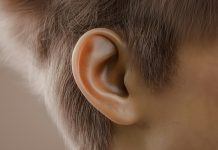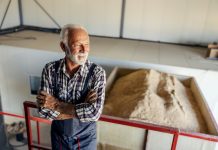
Parkinson’s disease is a nerve problem. It affects many people around the world. We don’t know exactly why people get Parkinson’s.
But, a new study has found a clue. Researchers from the University of Helsinki say bad gut bacteria might be linked to Parkinson’s.
Understanding Parkinson’s Disease
Parkinson’s disease is tough. It causes people to shake. They also have trouble with balance and movement. Some even have problems with memory and mood.
Parkinson’s happens when certain nerve cells in the brain break down or die. But, we don’t know why these cells die. The answer to this question could help us find better treatments for Parkinson’s.
What is Gut Bacteria?
Our guts are full of tiny creatures called bacteria. There are millions of them inside us. Most of these bacteria are good.
They help us digest food and keep us healthy. But, some bacteria are not so good. They can cause problems if they become too many.
The Study’s Findings
The team in Helsinki has been studying one type of bacteria called Desulfovibrio. This bacteria lives in our gut. Some types of Desulfovibrio are good for us. But, other types can make us sick.
The team found that people with Parkinson’s had more bad types of Desulfovibrio in their guts. The more bad bacteria they had, the worse their symptoms were. This is what the team found in their study in 2021.
After that, other researchers in China did the same study. They found the same thing. This tells us that the link between Desulfovibrio and Parkinson’s might be real.
The team then did another study. They took the bad Desulfovibrio from people with Parkinson’s. They put it into lab creatures.
They saw that these creatures started to show signs of Parkinson’s. This was because the bad bacteria were causing clumps of a protein called α-synuclein to form in their bodies.
The good Desulfovibrio from healthy people did not do this. So, the bad Desulfovibrio might be causing the clumps. These clumps could then be killing the nerve cells in the brain, leading to Parkinson’s.
Why This Matters?
If we can prove that bad Desulfovibrio causes Parkinson’s, we could find a way to stop it. We could screen people for these bad bacteria.
If they have them, we could try to remove them. This might help slow down or stop Parkinson’s.
The next step is to find out how these bad bacteria cause the protein clumps to form. This will help us find even better treatments for Parkinson’s.
What Can You Do?
There’s no sure way to prevent Parkinson’s. But, there are things you can do to lower your risk. Regular exercise can help. So can a healthy diet with lots of fruits, vegetables, and lean proteins.
Try to avoid things that could harm your brain. This includes smoking, heavy drinking, and pesticides. Make sure to protect your head when playing sports or biking.
Staying mentally and socially active might also help. So could getting good sleep. Remember, if you have any concerns about Parkinson’s, talk to your doctor. Regular check-ups are key to staying healthy.
Conclusion
Parkinson’s is a complex disease. But, this new research gives us hope. It brings us a step closer to understanding why Parkinson’s happens. And, it points us towards new ways to treat it.
The work is far from over. But, every discovery brings us closer to a world where Parkinson’s is a thing of the past.
This study was published in the “Frontiers in Cellular and Infection Microbiology” journal. For more information about Parkinson’s and other brain health topics, please stay tuned to our updates.
If you care about Parkinson’s disease, please read studies about Vitamin E that may help prevent Parkinson’s disease, and Vitamin D could benefit people with Parkinson’s disease.
For more information about brain health, please see recent studies about new ways to treat Parkinson’s disease, and results showing COVID-19 may be linked to Parkinson’s disease.
Copyright © 2023 Knowridge Science Report. All rights reserved.



